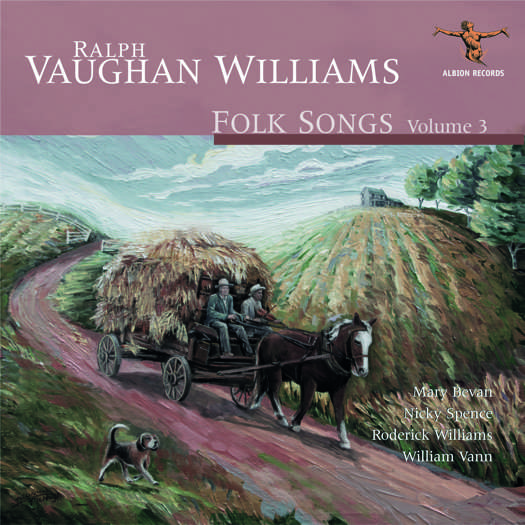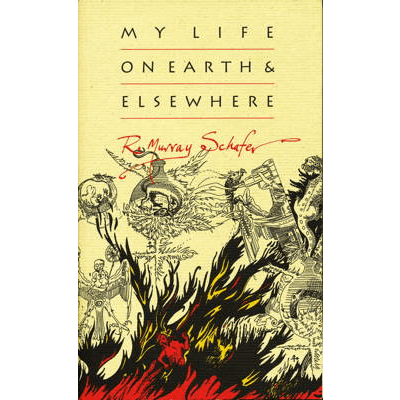 CENTRAL ENGLAND: Mike Wheeler's concert reviews from Nottingham and Derbyshire feature high profile artists on the UK circuit - often quite early on their tours.
CENTRAL ENGLAND: Mike Wheeler's concert reviews from Nottingham and Derbyshire feature high profile artists on the UK circuit - often quite early on their tours.

Vaughan Williams and English Folk Songs
SIMON FARRUGIA recommends Albion Records' astonishing new recording
'... every musician implements great passion and talent throughout.'
The English composer Ralph Vaughan Williams is considered to be one of the most prominent composers of the first half of the 20th century. He was born on the 12th October 1872 in Down Ampney, Gloucestershire, England and died on the 26th August 1958 in London. Vaughan Williams is renowned for being the founder of the nationalist movement in English music. In a span of over sixty years, his musical output includes orchestral compositions (including nine symphonies), ballets, secular and religious vocal pieces, and several operas. In addition, he conducted several recordings for gramophone and radio. Vaughan Williams studied with two authoritative composers: first during his studies at the Royal College of Music, where he studied with Hubert Parry, and later with Charles Stanford at the same college after returning from Cambridge, with whom Ralph formed the Folk-Song Society in 1898.
The musicians that contribute to this new album, Ralph Vaughan Williams: Folk Songs Volume 3, are transcendent. Trained at the Royal Academy Opera, the English soprano Mary Bevan is praised by Opera for her 'dramatic wit and vocal control'. Bevan read Anglo-Saxon Norse and Celtic at Trinity College and is an Associate of the Royal Academy. She was awarded the Royal Philharmonic Society's Young Artist and UK critics' Circle Award for Exceptional Young Talent in music. Nicky Spence, who was educated at Wallace Hall Academy in Thornhill and won the Kathleen Ferrier Society Young Singers Bursary, is a Scottish operatic tenor who performs in the UK and internationally. Roderick Williams is a baritone who won the Royal Philharmonic Society's Singer of the Year award. His repertoire ranges from baroque to world premières. William Vann, who plays the piano, is a multiple prize-winning accompanist and conductor who performs worldwide. This album also features notable singers in the chorus. including Helen Ashby and Kate Ashby (sopranos), Cara Curran (alto), Benedict Hymas (tenor), James Arthur and Nicholas Ashby (basses).
This album is the third volume from a series of four albums comprising original arrangements by Albion Records which Vaughan Williams produced soon after he had collected these songs from the English countryside. These eighty-one English folk songs - fifty-seven of which have not previously been recorded - that Vaughan Williams arranged for piano, violin and voice are fairly well known. This volume contains twenty-one tracks, fourteen of which are world premières, with a total recording time of 60'42". Its major collection - the first fifteen tracks - includes folk songs collected by Vaughan Williams himself from 'The Eastern Countries' - primarily Essex, Norfolk and Cambridgeshire, the earliest works in the series. Track 16 features Twelve Traditional Country Dances arranged for Maud Karpeles (1931), while the rest are songs from The Penguin Book of English Folk Songs (tracks 17, 18 and 19) and from The Motherland Song Book (tracks 20 and 21). The organisation of the programme reflects a good deal of thought, which is noted mostly through its diversity.
Vaughan Williams is considered to be one of the first musicians who contributed to the English Folk Song revival, not least by using folk song tunes in his compositions. Bushes and Briars, which this album opens with, was the first song that he collected from Mr Charles Pottipher - a seventy-year-old labourer from Ingrave, Essex; thus, it had to be the starting point to his folk songs collection. Bushes and Briars became part of the repertoire of many choir and solo singers. The first verse is sung unaccompanied, as indicated by Vaughan Williams, so as to let the listener experience this revelation of beauty - something which he did:
Through bushes and through briars
I've lately made my way
All for to hear the small birds sing
And the lambs to skip and play
Listen — Vaughan Williams: Bushes and Briars
(track 1, 0:04-0:44) ℗ 2021 Albion Records :
All musicians' performances on this album are outstanding. Each and every detailed timing, as indicated in the score, is well observed. In addition, these musicians' expertise here can be observed in their mastery of expression marks such as pochettino animando (a bit lively), poco più animato (a little more animated) and appassionato (with passion). This album's recording of Bushes and Briars may be considered as a witness to the relationship between the musical culture and the power of individual songs.
Tracks 17, 18 and 19 are taken from The Penguin Book of English Folk Songs, which contains seventy tunes. Thirty-one of these tunes are plagal while thirteen are authentic. The majority of the other twenty-five tunes are mostly authentic; however, one contains a sub-keynote, or another one with super-keynotes. There is another instance, in one of these tunes, of variant keynotes. It is fascinating that most of these tunes all have either D or G as their keynote. Salisbury Plain (soprano), Banks of Green Willow (baritone), and The Basket of Eggs (tenor) were chosen for this album.
Listen — Vaughan Williams: Salisbury Plain
(track 17, 0:00-0:50) ℗ 2021 Albion Records :
Great emotion and connection to these songs bring these tunes to life. All musicians show remarkable musicianship.
We be three poor mariners (track 20) and The Arethusa (track 21), taken from The Motherland Song Book, Volume III (1919), bring this album to an end. Both songs are for baritone with chorus and every musician implements great passion and talent throughout. The baritone and chorus in these two songs display great tone and control.
We be three poor mariners
Newly come from the seas;
We spend our lives in jeopardy
While others live at ease.
Come let us dance the round,
A round, a round
Come let us dance the round,
A round, a round
And he that is a bully boy
Come pledge me on this ground,
A ground, a ground.
(part of We be three poor mariners)
Listen — Vaughan Williams: We be three poor mariners
(track 20, 0:04-0:24) ℗ 2021 Albion Records :
This album is not composed of just tunes; Vaughan Williams captures the folk songs' heart. It is a simply astonishing album and you will fall in love with Vaughan Williams all over again. This album will surely stand out as a definitive appreciation of Ralph Vaughan Williams' folksong arrangements for generations to come.
Copyright © 27 September 2021
Simon Farrugia,
Malta

CD INFORMATION - RALPH VAUGHAN WILLIAMS: FOLK SONGS VOL 3



